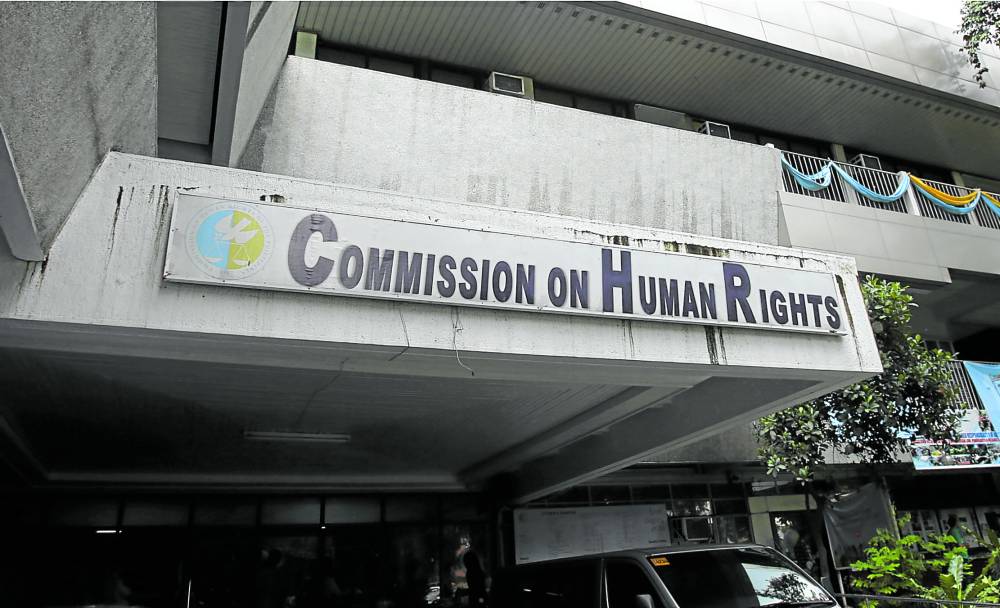MANILA, Philippines — The Commission on Human Rights (CHR) on Thursday announced that it would investigate allegations that a prison visitor at Camp Bagong Diwa in Taguig City was subjected to a strip search that left her with “feelings of shame and degradation.”
The CHR said it “expresses grave concern regarding the alleged strip search of relatives of political prisoners in Metro Manila District Jail Annex 4 at Camp Bagong Diwa.”
“As the lead agency in the Interim National Preventive Mechanism, CHR shall look into these allegations to ensure that searches are conducted in a manner intended for its purpose, but with the utmost respect to individual dignity and privacy,” said the CHR in a statement.
Alleged strip search complainant visited her father on January 8 after being separated from him for three years because of COVID-19 pandemic limitations at Metro Manila District Jail Annex 4 in Camp Bagong Diwa, Bicutan, as reported by the CHR.
The woman was directed to a room without doors or curtains for privacy and was then asked to lift her top so that her undergarments could be searched for contraband. The food she brought in transparent containers was also opened and poked at.
The CHR cited the Operations Manual of the Bureau of Jail Management and Penology (BJMP), which said that searches should be done in a designated area and that another visitor may accompany the visitors. They must also sign a waiver for the search they would undergo.
According to the complaint received by the CHR, the woman was “neither informed of her rights nor was she asked to sign a waiver before the search. The victim adds that her husband was not allowed to enter the premises. These compounding circumstances resulted in feelings of shame and degradation.”
The Commission cited Rule 51 of the United Nations Standard Minimum Rules for the Treatment of Prisoners or the Mandela Rules, which says that searches should not be used to “harass, intimidate, or unnecessarily intrude upon a prisoner’s privacy” and that prisons should document these searches and their reasons for it.
Rule 52.1 of the Mandela Rules also said such searches should only be done when “absolutely necessary.”
“Chairperson Richard Palpal-latoc also encouraged victims of similar occurrences to report to CHR so we may strengthen our work in improving safety protocols in penitentiaries and detention facilities in the country. We likewise remind BJMP officers and personnel to uphold their own regulations to help ensure government compliance to the humane treatment of the accused and incarcerated,” said the CHR.
